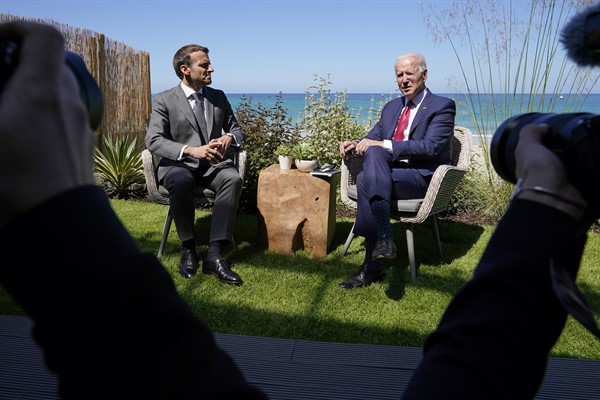As evidenced by the wall-to-wall coverage this week in this publication and countless others, French President Emmanuel Macron’s recall of France’s ambassadors from Washington and Canberra over the trilateral security pact between the U.S., Australia and the U.K. has naturally raised anew worries about the stability of the trans-Atlantic partnership and the cohesiveness of NATO. U.S. President Joe Biden’s hard pivot to the Indo-Pacific is clearly giving France specifically, and the EU and the world more generally, a bad case of whiplash.
But perhaps overshadowed by Paris’ fit of pique over Australia’s cancellation of its multibillion-dollar deal with France to build attack-class submarines in favor of a sweeter deal with the U.S. and U.K. is the fact that the announcement of the new security partnership is as seismic in its proportions as was the American exit from Afghanistan. The new compact, known as AUKUS, sends an ear-shattering signal to Beijing, Paris and other European capitals that the new consensus in Washington centers on maintaining American technological prowess from tooth to tail—political costs be damned.
Though France was caught off guard by the announcement, the scale of the threat from China has grown even in the past few years since the French-Australian contract was signed—in ways that were clear in Canberra, but perhaps less so in Paris. The reality is that U.S.-made Virginia attack-class nuclear-powered submarines will allow Australia’s navy to run longer, stealthier blue-water missions than the diesel-powered French submarines that were on offer. And for the U.S., AUKUS has the ancillary benefits of both showing China just how serious Washington is about its commitments to projecting U.S. power in the Indo-Pacific and drawing the U.S. ever closer to one of the most important mineral markets in the world for the future of defense technology.

